We may earn revenue from the products available on this page and participate in affiliate programs. Learn More ›
I started camping right around the same time I started walking. My parents loaded my brother and I into their orange Volkswagen bus and drove us from our house in central Wyoming to the closest open campsite we could find. Since then, I’ve camped from north of Alaska’s Brooks Range to the bottom of Argentina, though the bulk of my nights outdoors are still spent in Wyoming. I’ve learned a few good camping hacks along the way.
I’ve learned from my own missteps, like when we forgot forks, spoons, and a can opener to eat baked beans or when we didn’t have extra batteries for our Steripen UV water purifier while backpacking 20 miles from anywhere in Ecuadorian mountains. But I’ve also learned from countless interviews with experts over the years.
So whether you’re a hard-core thru hiker or a casual family car camper, hopefully these camping tips, tricks, and hacks will give you some help or inspiration this summer.
Backpacking and Thru Hiking Tips
Pretreat for ticks. Coat your hiking clothes in Permethrin, a synthetic molecule that repels mosquitoes, ticks and other insects, says Retha Charette, a backpacking coach who completed the 2,193-mile Appalachian Trail in six months. But also treat your rainfly, tent, backpack, shoes and socks (never use it on your underwear). Charette coats everything again after four or five weeks of use. Read next: Best Tick Repellent
Don’t use stuff sacks. Sure, stuff sacks are handy, but the nice ones can weigh up to 2 or 3 ounces. When you’re carrying everything on your back, ounces make pounds and pounds make pain. Pack your sleeping bag in a dry bag and leave the rest at home.
Don’t worry about soap. If you’re going for more than a week, consider some kind of soap for your body, but otherwise, hand sanitizer and a quick scrub in a creek or lake will do.
Use toothpaste tablets. They save on weight and volume. Remember, every ounce counts.
Downsize your toothbrush: Some people cut the handle off their toothbrush. Charette brings a mini travel toothbrush and leaves the container at home.
Take a wilderness first aid class. You’ll never know when you need to help yourself or someone else. Wilderness first aid classes will teach you what to do with limited gear when you’re far from help.
Consider trekking poles. They’re not just for old people. Trekking poles keep weight off your knees, which might not matter for shorter trips but will matter after many miles on the trail.
Pack only what you’re going to eat. If you don’t like oatmeal, don’t bring it, even if it’s on all the backpacking lists. “When you’re backpacking, your body needs calories,” Charette says. Consider some heavier foods if they’re your favorite and come packed with the nutrients your body needs.
Bring dry clothes for sleeping: Charette packs a pair of clothes for hiking and layers for changing weather. Most importantly, she has a shirt and pants designated for sleeping so she knows she will always have dry clothes before bed. “The day could have sucked, but if you have warm, dry clothes and slip into a dry sleeping bag, that’s a vibe.”
Bring a down jacket. Hypothermia can happen in the middle of summer especially with unpredictable weather and long days on the trail. A down jacket will keep you warm (or warm you up) and could even save your life.
Protect your feet. Think about wearing Injinji toe sock liners or coating your feet in Vaseline to protect them from blisters. Also invest in decent moisture-wicking wool socks like Darn Tough.
Powder up. Use a powder like Gold Bond on your shoulders or back if you’re packing somewhere hot and you’re prone to heat rash.
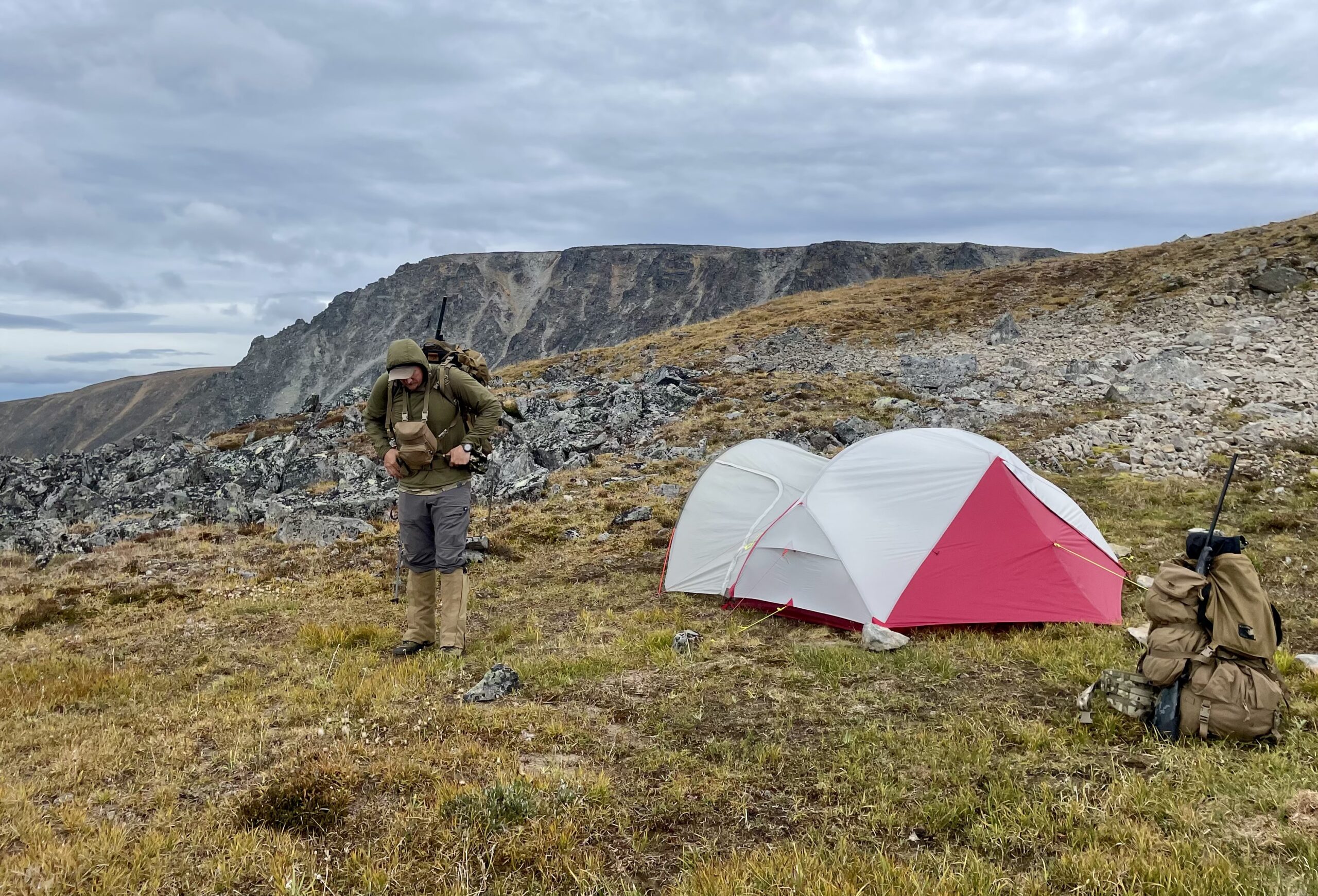
Bring paracord. Possible uses for 30 to 40 feet of paracord are endless. Bring a length to hang food, dry clothes, strap down muddy gear on the outside of your pack, or even lower your backpack down a particularly gnarly stretch of rocks.
Read Next: Best Ultra Light Tents
Use your shirt as a towel. You don’t need to bring an extra towel, even if you’re planning to hike for six months. Dry off with your shirt and save those ounces.
Carry an emergency transponder. Don’t mess around with emergencies in the backcountry. Invest in a device like the Garmin inReach for the worst-case-scenarios.
Have a safety plan. Know what you’re going to do if you get bit by a rattlesnake, run into forest fires, or face a flood. But also know what to do with common pitfalls like rolling your ankle or gouging yourself on a stick.
Travel with two ways to purify water. Bring a water filtration system you trust like an MSR Guardian Portable Water Filter or Platypus Gravity Works, but also bring an emergency backup like Aquamira chlorine drops.
Read Next: Best Backpacking Water Filters
Poop responsibly. Dig holes 6 inches deep, bury your toilet paper, and keep your waste away from lakes, streams, or rivers.
Always pack an extra meal. It doesn’t have to be fancy. Bring along protein bars, dehydrated dinners like the best backpacking food or MREs. They’ll save you in case you want to (or need to) stay an extra day.
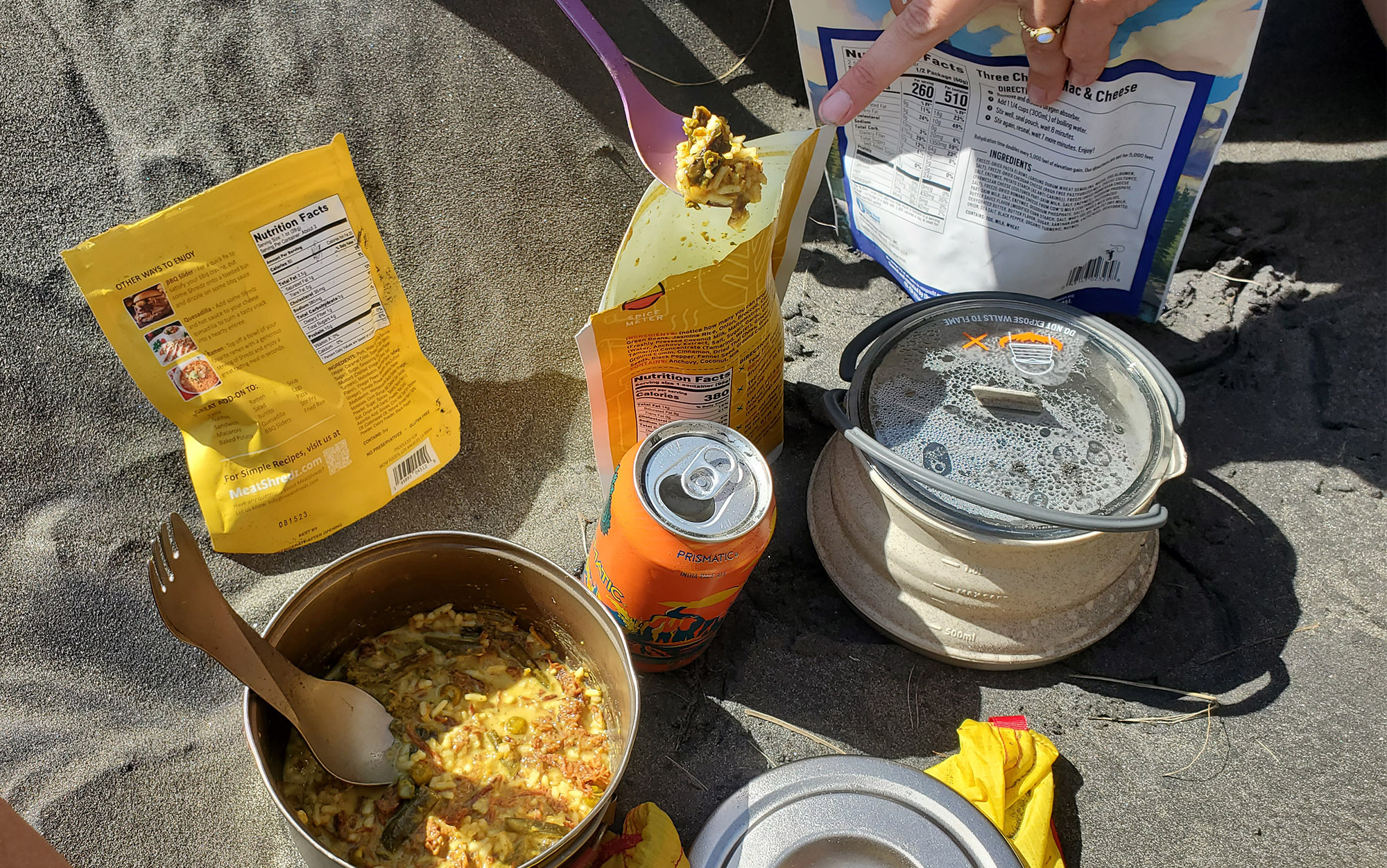
Tips for Camping in Bear Country
Don’t sleep with food in your tent. Just don’t. It’s not worth it. Even if you aren’t in bear country, food in your tent will attract other unwanted creatures like mice and raccoons.
Carry bear spray. Know how to use it and keep it handy.
Watch for bear sign. Keep an eye out for piles of poop and other fresh bear sign. If you start to see sign in camp or on the trail, make noise to prevent surprising a bear.
Keep a clean camp. The best way to avoid bears in camp is to make sure anything they could want (human food, pet food, granola bar wrappers, and dirty dishes) are secure. Also consider locking your vehicles at night. Bears have been known to open doors.
Store food properly. Use approved boxes or bear canisters, hang your food from trees or lock it in your vehicle.
Camping with Kids
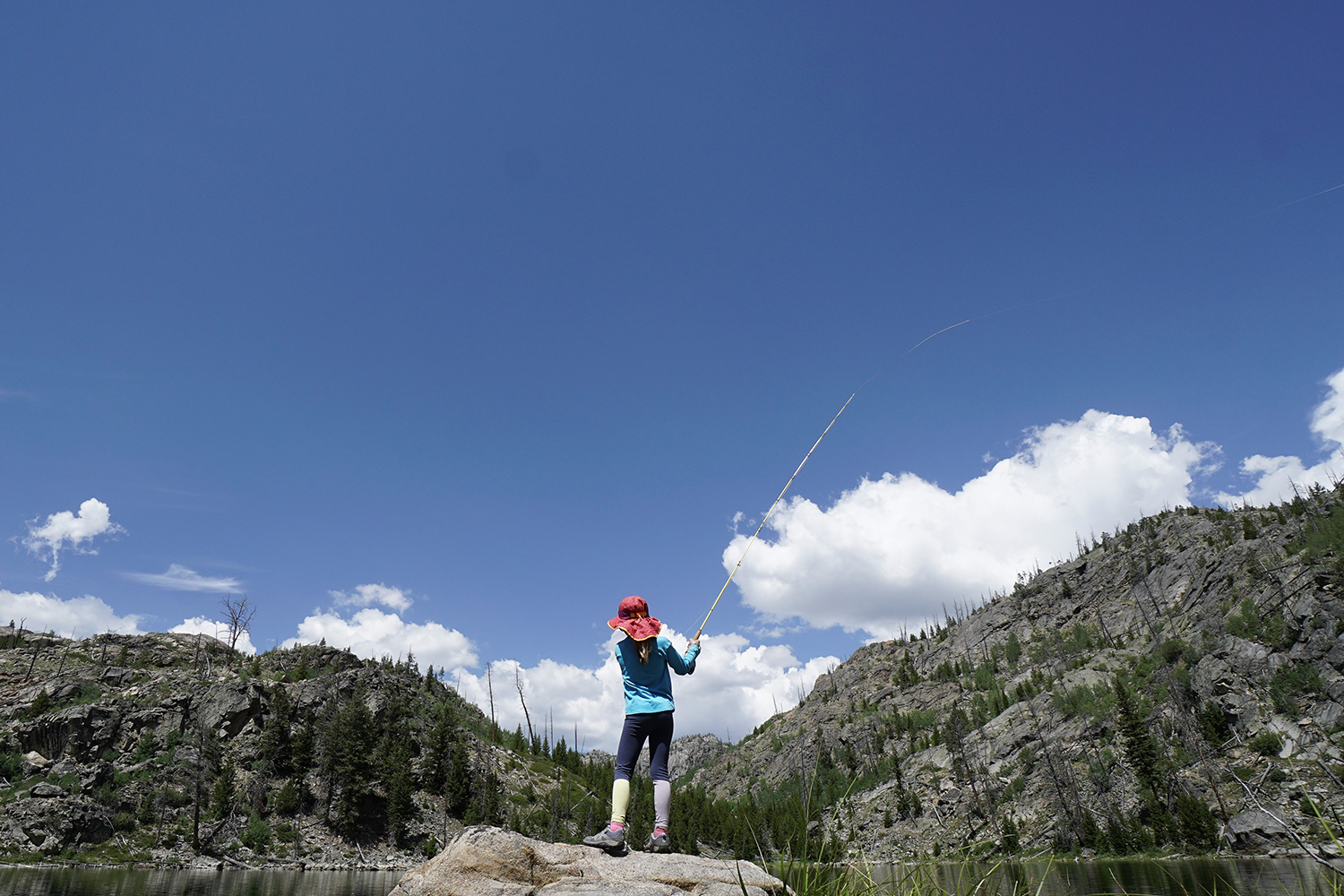
Bring food they’ll eat. Don’t decide a camping trip is the time to teach your kid to eat spinach. Bring snacks, meals, and treats you know they’ll like.
Make meals interactive. Bring food like hot dogs or brats to roast over a campfire, pizzas they can assemble themselves, foil packet dinners they can help make, or baked beans to cook in the fire.
Pack outdoor activities. Leave games for home at home. While camping, bring activities they can only do outdoors like fishing rods, bows and arrows, or rafts.
Create games in the woods. Consider games like wilderness Bocce ball played with rocks and stumps. Make up a scavenger hunt tailored to ages and ability levels ranging from “find a pinecone” to “find a rock with green lichen.”
Pack the right clothes and gear. A cold or wet kid isn’t a happy kid. Bring the right shoes, warm clothes, bug protection, and sunscreen to keep them as comfortable as possible.
Don’t push it. That’s great if your child loves long hikes, 12-hour fishing days, or waking up before first light, but if they don’t, lower your adventurous expectations. Your kid wasn’t born as your adventure buddy. Ease them into it.
Let them help. Ask them to choose a spot for your tent, build a campfire, and set up camp. The more they learn and participate, the more they’ll want to keep camping.
Read Next: Best Camping Tents
Bring glow sticks. This isn’t a must, but a bag of cheap glow sticks from a dollar store will provide hours of post-dark entertainment and help you keep track of groups of little ones in the woods.
Car Camping Hacks & Tips
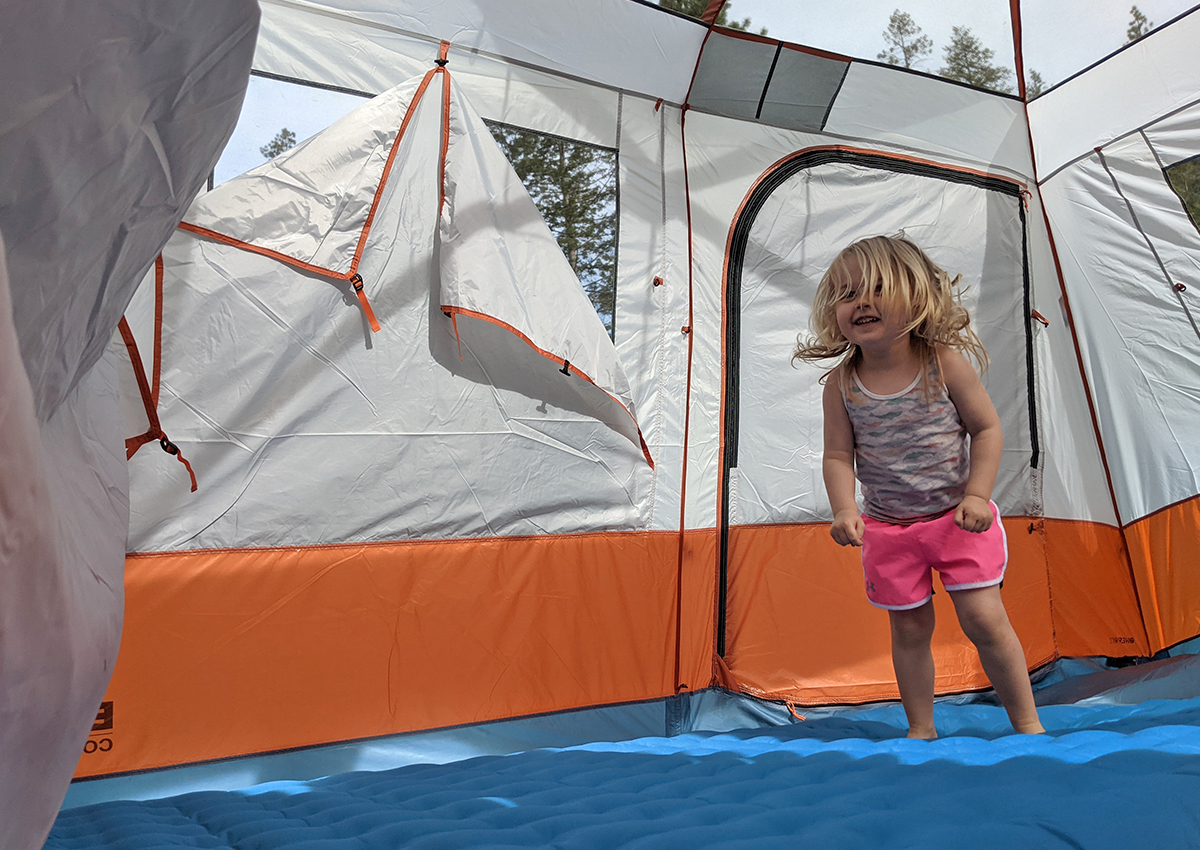
Make a camp kitchen box. Don’t wait for each trip to gather every item you need to cook food. Make a box with essentials like dishes, pots, pans, common spices, coffee, and other must-haves then replenish when you return.
Buy a two-burner stove. Lightweight stoves with a single burner are great for the backcountry, but when you have a vehicle, just bring something like the classic Coleman gas stove so you can heat water while you cook eggs or boil noodles while you stir up a sauce. Read next: Best Camping Stoves
Go basic. Camping doesn’t require anything fancy. Until you know what you want, go with the basics then upgrade as needed.
Bring extra water. Not all campgrounds will have potable water. Bring a 5-gallon jug or water purification system to be sure you aren’t stranded.
Be comfortable. You’re car camping. Bring pillows, a decent pad to sleep on and food you want to eat. Save the lightweight sacrifices for when you’re in the backcountry.
Go with gas. If you live in areas prone to fire restrictions, consider buying gas portable fire pit. It’s easy and gives you campfire ambiance with a way to cook s’mores.
Improvise. We all have visions of how camping trips should go. Most of the time they’re wrong. Be ready to try something new, whether it’s whittling a wood spoon from a stick because you forgot silverware or piling pine needles under your tent because your sleeping pad sprung a leak.
Have an emergency kit. Pack a way to cut wood like a hatchet or small travel saw, first aid kit, extra matches and fire starter, flashlight, duct tape, needle and thread, solar battery charger and emergency blankets.
How to Choose the Right Camping Spot
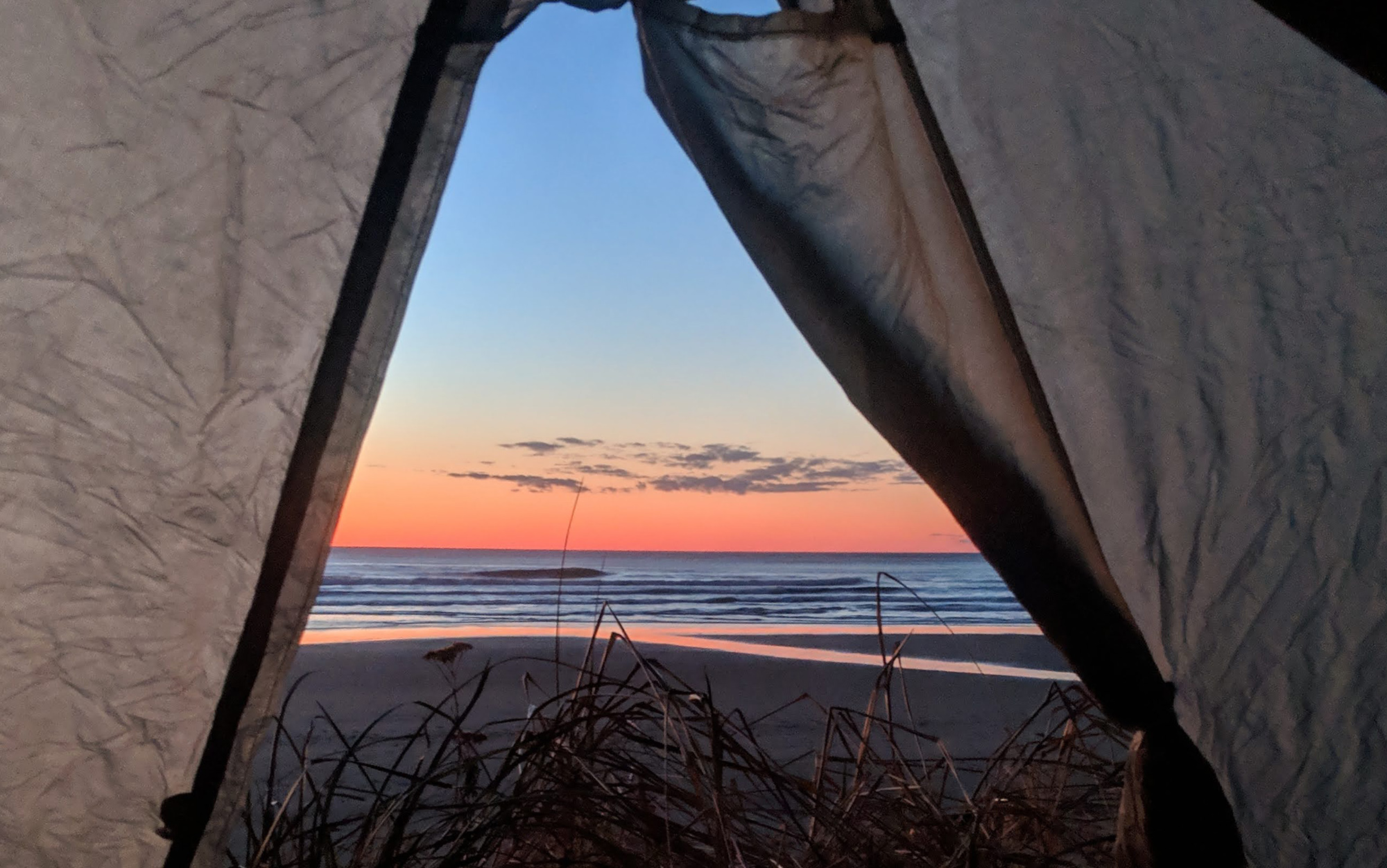
Plan ahead. Many campgrounds require reservations, and even the ones that don’t are busy on popular summer weekends or holidays. Check online to reserve a campsite before you leave and consider dispersed camping if your preferred spot is full.
Do your research. Campground maps rarely reflect where the actual site may be, and if you aren’t familiar with the area, it’s easy to reserve a site wedged among dozens of campers with generators or downwind from the outhouse. Use online functions like Google Earth to check for characteristics like appealing tree stands, actual distance between campsites or proximity to water.
Know what you want. Think about how close you want to be to your neighbors, to water, to bathrooms or playgrounds before you choose a site and settle in.
Consider the sun. Maybe you’re an early riser and enjoy the sun on your tent, maybe not. Either way, think about where the sun will rise and if you want to be warmed up early or if you’d rather have a bit more shade.
Check for trees. Dead trees are called widowmakers for a reason. Survey your surroundings before you set up a tent to be sure you aren’t sleeping where a tree could fall.
Read Next: How to Choose a Campsite
Final Thoughts on Camping Hacks & Tips
Leave your site better than you found it. Pack out your garbage and check your campsite before you leave, but also consider cleaning up any trash in the area even if it wasn’t yours.
Be neighborly. Unless you’re dispersed camping or you’re somehow the only one in your campground, follow quiet times, don’t play loud music and generally be considerate of those around you.
Go to town for a meal. Just because you’re camping doesn’t mean you have to suffer through pouring rain or hail. If moods reflect the weather, think about driving into town to eat dinner and warm up. A hot meal indoors can work wonders.
Head out with a full tank of gas. And if you’re going into the mountains, fill up before you leave the closest town. If you think you could run out of gas, consider throwing in an extra gas can.
Tell someone where you’re going. And when you’ll be back.
Have a plan B. Know where you will go if the campground is full or if the weather turns, and worst case, turn around or decide to embrace the suffer, make it fun and know you’ll have a story to tell.
